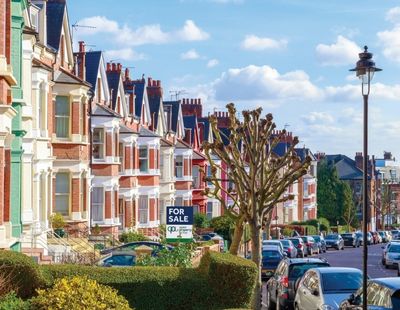Mortgage rate hikes have already halved landlord profits according to latest research, and a base rate rise to 2.5% will see many returns turn negative. With base rates expected to hit over 4% very soon and many buy-to-let investors seeing a drop in profits as they refinance on to more expensive deals, is the Private Rented Sector facing a crisis?
When demand is already far outstripping supply, with little appetite for further buy-to-let investment in the current climate, a mass exodus of landlords could hit tenants even harder.
They face dwindling profits or worse – loss making investments – and in some cases, will have no option but to increase rents or sell the property. At a time when buyers are sitting on their hands waiting for the anticipated house price crash, that’s not good news either.
For tenants, millions are already spending over half of their wages on rent and the cost of living crisis is only tightening their purse strings. One in seven have already experienced a rent increase, which many may not be able to afford now, let alone any anticipated future increases.
And where does that leave us? With more rent arears and landlords footing the bill that they can also ill afford. It’s a no-win situation.
Fix or fly?
The proportion of homeowners fixing rates is at an all-time high, at 84.9% according to lending analysis by Savills, and with the average two-year fixed deal now higher than in 2008, the Bank of England expects defaults to rise.
It appears the same is happening in the buy-to-let sector, with many landlords rushing to fix too despite some 500 deals disappearing overnight following the mini budget. But have they considered all of the consequences?
Fixing for five years is generally more expensive, but at least comes with some medium term security. Two-year money is slightly cheaper and the sentiment is that the market should correct itself in two to three years. So, for landlords who take the longer deals, there is a risk that if rates go down and they want to remotgage (or sell), there could be some hefty early repayment charges to pay.
Those investors who purchased at peak prices in the last 12 months may have a preferential rate right now, but face a dip in house price value and a shock when their remortgage comes around.
In a recent report by Simply Business, 61% of landlords claimed they were already planning to sell properties in the next 12 months, with one fifth stating rental reforms as the bigger motivator. However, while the results were published in September 2022, the survey took place in March when property prices were still soaring. I wonder what landlords would say now with the additional financial pressure of rising finance and management costs and expected decrease in values?
A solution with certainty?
Nobody can predict for sure what is going to happen in the next 12-18 months. Mortgage costs and rents will certainly rise but whether or not landlords and tenants can withstand this increase is down to individual circumstances.
Evaluating the financial health of a rental portfolio should be the first step, stress testing against the worst-case scenario, and if it turns out the property is a big buy-to-let loser, then it may be better to offload now rather than in a year’s time when property prices have fallen. The silver lining is that this will free up capital to take advantage of any opportunities when demand and prices have dropped.
The question is, who will buy property right now? Probably not anyone that needs a buy-to-let mortgage and cash investors will likely also wait for a house price crash, but professional cash buyers provide certainty in uncertain times.
Offering speed and certainty of sale with no fees, most companies offering these services guarantee to purchase any rental property in any location.
Whether tenanted or with vacant possession and regardless of condition or rent arrears status, companies like Open Property Group will make a realistic offer based on the facts and exchange contracts within a desired timeframe – currently 13.2 days on average.
The benefit to the landlord is a fast, hassle-free and guaranteed sale with no fees to pay (excluding tax liabilities).
There’s no need to engage an estate agent, and the cash buyer will cover 100% of any legal and letting agent fees.
Perhaps it’s time to offload some buy-to-let losers?
*Jason Harris-Cohen is Managing Director of Open Property Group













.jpg)
.jpg)







.png)



Join the conversation
Jump to latest comment and add your reply
Another loaded advertising ad!
Shouldn't EAT declare funded articles don't you think!
Sounds pretty useful. Thank you
Loaded article to make you make you sell your property cheaper and quicker.
This is not an article it’s an ad!
Is an advert calling your potential customers buy to let losers the best hook to get the phone ringing?
As a professional landlord, who has bought property over the past thirty plus years, a lot of my properties are now debt free, rent are up 12% in sw London. Why would one sell?
Getting a bit p***** off with these fake articles EAT. Losing credibility!
Please login to comment